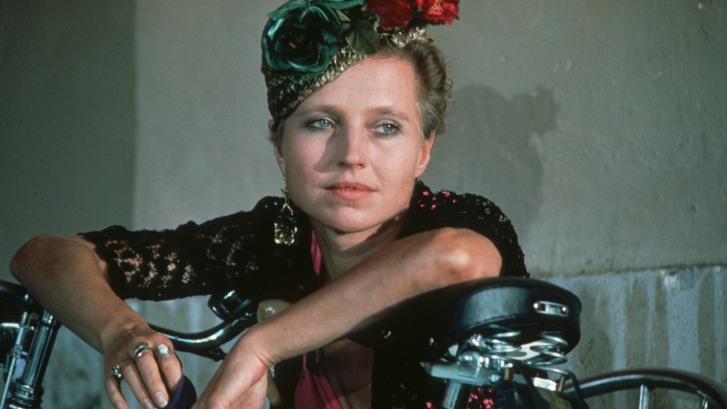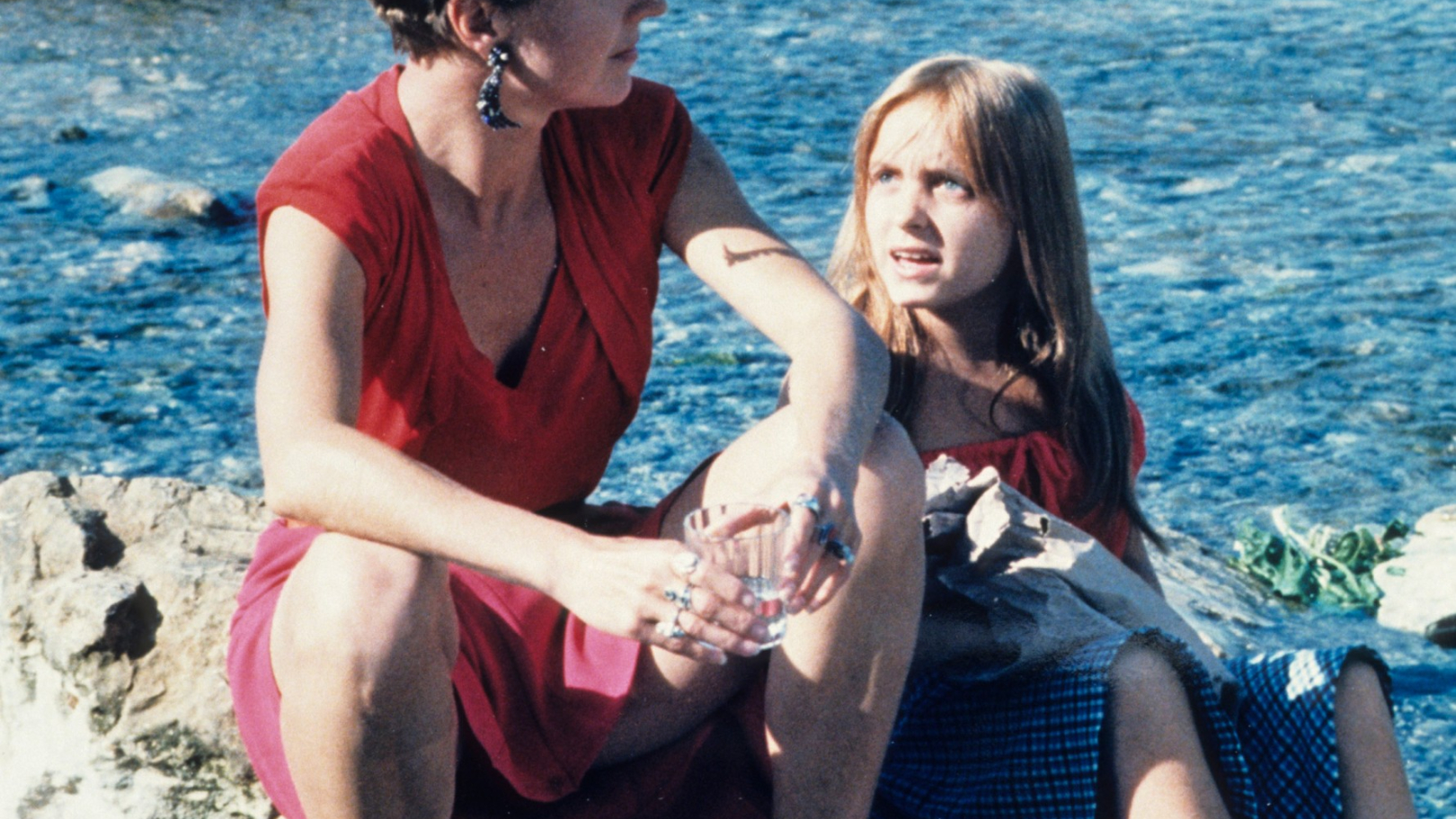Storia di Piera

STORIA DI PIERA tells the story of a family, bound by archaic and unbreakable ties that supersede the laws of nature and age. The film portrays the relationship between a mother (Hanna Schygulla) and her daughter (Isabelle Huppert). The relationship is defined by friendship and sensuality. The girl declines school and discovers that theatre is the aim of her dreams. She has however the wish to be both a man and a woman. Her personality radiates strength and tenderness. Thanks to her unique attractiveness, she is loved and the object of wonder everywhere.
Hanna Schygulla plays a nymphomaniac and neurotic mother who still feels young. She destroys her family by plunging headlong into countless affairs and ends up in a psychiatric clinic. Her husband loses first his mind, then his life. Their daughter Piera is a precocious Lolita who is incapable of finding emotional fulfilment until she is well into adulthood and has embarked on a career as a stage actor. Hanna Schygulla received the Award for Best Female Actor at the Cannes film festival for her performance.
>>> watch ital. clip on YouTube
details
-
Runtime
105 min -
Country
Italy, France, Germany -
Year of Presentation
2010 -
Year of Production
1982/83 -
Director
-
Cast
Marco Ferreri, Isabelle Huppert, Hannah (Hanna) Schygulla, Marcello Mastroianni, Angelo Infanti, Tanya Lopert, Bettina Grühn, Maurizio Donadoni -
Production Company
Faso Film S.r.l.; Sara Films S.A.; Ascot Film GmbH -
Berlinale Section
Homage -
Berlinale Category
Feature Film
pictures from the movie

Biography Marco Ferreri
He provoked during his film career with his unusual films, from his most famous work "Das grosse Fressen" to "Fleisch" (Meat), in which a man keeps his lover in the doghouse for a while. Marco Ferreri (1928-1997) broke off his studies of veterinary medicine, worked as a liquor dealer and advertising merchant and produced the film magazine "Documento mensile" since 1951, for which Fellini and Visconti, among others, contributed short articles. Since he could not get beyond scripts, assistances and acting in Italy, Ferreri went to Spain and sold optical equipment for film studios. In Spain he met the screenwriter Rafael Azcona with whom he worked several times. His directing debut "Die kleine Wohnung" was followed by "Los Chicos" in 1959, about teenagers in the slums which was forbidden. Back in Italy, Ferreri shot some macabre-sarcastic marital comedies revolving around the man as a cuckold and criticizing Italian marriage laws and matriarchy. The most famous of these satires, shot in late neo-realist style, was "The Queen Bee" (1963, book: Azcona), in which Ugo Tognazzi is driven to impotence by the sexually insatiable Marina Vlady. In return, in "Dillinger is dead", entrepreneur Michel Piccoli shoots his wife (Anita Pallenberg) and embarks for Tahiti. Ferreri's masterpiece "Das grosse Fressen" (1973), in which Marcello Mastroianni, Michel Piccoli, Ugo Tognazzi and Philippe Noiret lock themselves in a villa and systematically eat themselves to death, was one of the great scandalous films of the 1970s, which in its criticism of saturated society saw self-destruction as the only alternative. In "The Last Woman" (1975) Gérard Depardieu cuts off his penis with a bread saw, in "Affentraum" he communicates only through a whistle. As an alternative to the films critical of civilization, "Mein Asyl" (1980) was made, in which Roberto Benigni, as a kindergarten teacher in Bologna, uses his imagination and willingness to experiment to gain freedom. But already "Ganz normale verrückt", in which Ben Gazzara played the writer Charles Bukowski, who never experiences the revelation of the mystery woman, took back utopia, showed the sharp separation of man and woman in the prostitute who mutilates herself at the vagina (Ornella Muti, one of Ferreri's favourite actresses). With Hanna Schygulla in the leading role, "The History of Piera" and "The Future is Woman" were written in the 1980s, in both of which he paid homage to the feminist culture of those years, in whose body cult Ferreri saw possibilities for a better world. Conversely, in "I love you" Christopher Lambert falls in love with a keychain with a woman's face that reacts to whistles with "I love you". Finally, in "Carne - Fleisch", a bar pianist (Sergio Castellito) retreats with the lush Francesca (Francesca Dellera) to a house by the sea, kills the lover after extensive orgies of sex and gluttony and begins to eat her. Sex in the old people's home in "Haus der Freuden" (1990), in which Ingrid Thulin seems to blossom in the face of death, Ferreri's provocative battle of the sexes was decided. The film was awarded the "Golden Bear" in Berlin in 1991, which is also a tribute to Ferreri's complete works.
-jokers.de